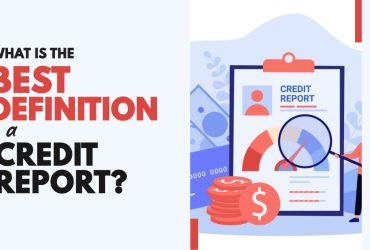Red Flags Credit Repair Organizations Should Look Out For
by Almas Tariq
February 12, 2019
02:10 PM

Credit repair scams are a serious concern for consumers seeking to improve their credit. Knowing the red flags for credit repair organizations is essential to avoid falling victim to these scams. Some organizations may promote the use of credit repair software as a quick solution, but consumers should be cautious and research these tools carefully.
A common credit repair scam involves companies promising to remove accurate information from your credit reports, which is illegal. While there are legitimate ways to address errors, it’s important to be aware of your legal rights and protections under the law. Credit counseling and debt settlement are alternative services that may be more appropriate for some consumers, and it’s important to understand the differences between these and credit repair.
Consumers have legal rights to dispute errors and ensure their credit reports reflect only accurate information. Reviewing your credit report regularly is essential to catch mistakes and protect your financial health. Understanding your credit history and how it impacts your credit score is also crucial.
Paying bills on time and managing debt responsibly are key steps, as missed payments and other negative marks can lead to a low credit score or bad credit, making individuals more vulnerable to scams. Watch for warning signs when evaluating credit repair services. A warning sign of a scam is any company that encourages you to falsify information or dispute accurate negative items on your credit report. Credit repair is important, but remember that a great credit score can open financial opportunities—there is no quick fix to achieve it.
Understanding Credit Repair
Credit repair is the process of improving your credit standing by addressing errors or inaccuracies on your credit report. This often involves disputing errors with credit reporting agencies, making consistent on-time payments, and managing outstanding debts to gradually boost your credit score.
While many people turn to credit repair companies for help, it’s important to recognize that not all services are created equal. Some credit repair organizations offer legitimate support, but others engage in credit repair scams that promise quick fixes or guaranteed results—claims that are simply too good to be true. To learn more about common credit repair myths, see this detailed guide.
Consumers have important rights under the Credit Repair Organizations Act and the Fair Credit Reporting Act, which protect you from deceptive practices and ensure you can dispute credit report errors. Being proactive about reviewing your credit report, disputing errors, and paying bills on time are essential steps in repairing your credit.
Credit monitoring services can help you track changes to your credit reports and alert you to potential issues early, making it easier to address problems before they impact your credit score. However, it’s equally crucial to be aware of the warning signs of scammy credit repair companies. Falling victim to credit repair fraud can not only waste your money but also damage your credit further. By understanding the basics of credit repair and your legal protections, you can make informed decisions and avoid the pitfalls of credit repair scams.
Characteristics of Legitimate Credit Repair Companies
When searching for a credit repair company, it’s essential to distinguish between reputable organizations and those that may be running credit repair scams. Legitimate credit repair companies are upfront about their services, fees, and the realistic outcomes you can expect. They provide a detailed contract that clearly outlines the payment structure and the specific steps they will take to help repair your credit. Importantly, trustworthy companies never demand payment upfront or charge steep upfront fees before any work is completed.
A reputable credit repair company will not guarantee a specific credit score increase or promise to remove accurate negative information from your credit report. They also avoid making false claims about having special relationships with credit reporting agencies or creditors. Instead, their focus is on helping you dispute errors on your credit report and offering guidance on how to improve your credit score over time through responsible financial habits. Legitimate credit repair companies may also provide credit education to empower clients to make informed financial decisions.
Look for companies with positive business ratings and proper accreditations from reputable organizations. Legitimate credit repair services provide written contracts detailing their services and fees, and they steer clear of deceptive practices such as creating false fraud statements or encouraging you to claim identity theft without cause.
By researching a company’s background and being alert to warning signs—like demands for payment upfront, promises of quick fixes, or guarantees of specific credit score results—you can protect yourself from falling victim to credit repair scams and choose a partner that will genuinely help you repair your credit and strengthen your financial future.
“Red Flags: Tips for Credit Repair Organizations from Ary Carmona”
What are some of the things credit repair organizations should be on the lookout? Score VP Ary Carmona shares some red flags to be aware of in the credit repair space:
- If an outsourcing company or third-party provider claims they deleted over 90% of items within a 3-6 month period.
- Unless there’s real evidence, beware of the language used in the dispute process, such as “Does not belong to me” or “Pay as agreed.”
- If a company offers to sell seasoned tradelines, that is a no rule. Authorized users are a privilege under the credit card contract and it’s not to be sold.
- Mortgage lenders use Rapid Rescore to help people who want to get a mortgage.
- Be cautious of companies that ask you to pay upfront or require any form of upfront payment before providing services, as this is a major red flag and may indicate a scam.
- Avoid companies that suggest using a credit privacy number (CPN) to create a new credit identity—this practice is illegal and can lead to serious legal consequences. Attempting to create a new credit file using false information is illegal and a major red flag.
- Watch out for fraudulent companies that claim to have special relationships with credit bureaus or creditors; these claims are often false and used to deceive consumers.
- Scams play out in various ways, such as requesting clients to pay upfront or asking for their social security number without a legitimate reason.
- Always check for reputable accreditation before working with any credit repair service to ensure legitimacy and avoid scams.
- Never provide your social security number to a credit repair company unless there is a legitimate, clear reason for doing so.
- Understand that missed payments are valid negative marks on your credit report and cannot be legally removed before they expire. If you’re looking for ways to remove repossession from your credit report, there are specific strategies and dispute processes you can follow.
The above behaviors are all red flags to avoid when considering a credit repair company. Credit repair scams play out in common forms, such as promising to erase negative marks from your credit report, requesting sensitive information like your social security number, or demanding upfront payment. Recognizing these tactics can help you avoid becoming a victim. We provide this information for educational and informational purposes only; it does not serve as or replace legal advice. We recommend seeking legal advice.
Conclusion:
In the dynamic world of credit repair, Ary Carmona underscores the importance of vigilance and discernment. By recognizing potential pitfalls and deceptive practices, credit repair organizations can ensure they operate with integrity and provide the best service to their clients. Knowledge is power, and staying alert is key. For more ScoreCEO how-to guides, tips, and tricks visit ScoreCEO’s Blog
Table of Contents
Explore More Insights
Dive deeper into a wealth of knowledge. Discover a multitude of articles covering diverse topics, expert perspectives, and the latest trends. Feed your curiosity and expand your understanding.



